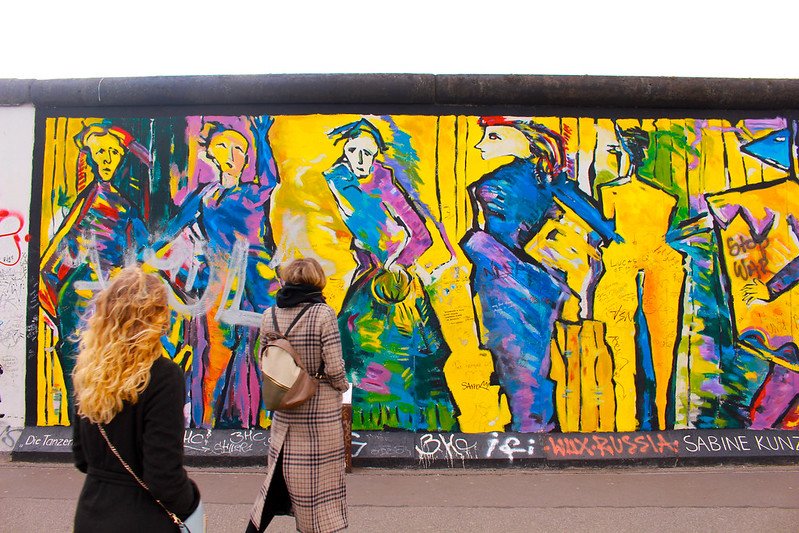Why You Should Listen to ‘Motomami’
Kasia Pendlebury tells you why you should be listening to Rosalía’s latest album, Motomami - and not just because of its TikTok fame.
La Ley de Memoria Democrática: Spain between ‘olvido’ and remembrance
Cameron White explores the ways in which Spain’s New Democratic Memory Law has revealed the tensions underlying the pursuit of justice for Francoism’s victims, which are tied up with questions of narrative and memory.
The Italian youth vote – the deciding factor in far-right victory?
Reflecting post-election, Olivia Solomons provides the contextual grounds that led to a far-right outcome, exploring the unique position of Italy’s young voters, contrasting other European countries.
It Gets Grimmer - Why Germany’s Most Famous Folklore is Even Darker Than You Think
In her article Imogen Barnes unearths the sinister side of the original versions of classic German fairytales written by the Grimm brothers, but also the dark side still lurking in their modified current forms.
Germany: The Ebb and Flow of an Economic Powerhouse II - Deutsche Bank’s Past Might Come Back to Haunt its Recent Success
In the second instalment of his column, Sam Russell Lewis investigates whether a scandalous history will dampen the impressive financial performance of Germany’s most prominent lender, Deutsche Bank.
The world according to ‘Ria Novosti’: A foray into Russian state media
In her article, Sofia Johanson takes us on a whistle-stop tour of ‘Ria Novosti’, a Russian state news website. In analysing the Kremlin’s artistic interpretations of the truth, parallels with the Second World War are drawn and we are reminded of the privilege we have in being able to access a range of unbiased news sources.
Livin’ la vida loca: the ‘guiri’ phenomenon and mass tourism in Spain
Inês Goes-Marlière dives into attitudes towards the guiri in Spain and the tensions underpinning the popular use of the term.
Looking Past the Paint: How Understanding Street Art Can Reveal Berlin’s Social Discourse Over the Years
Looking beyond the aesthetic value of street art, Freya Swinburne delves into the social, cultural and political meanings behind the numerous forms of graffiti found in Berlin.
Natalia Goncharova: Not Just Another Rebellious Female Artist
Sofia Johanson explores the significance of Natalia Goncharova, separating her status as defiant, rule-breaking woman from her artistic innovations which captured the shifting and instability of the 20th century in Russia.
Modern-Day Martyrologies: Hervé Guibert’s Mission to Write Life and Death in the HIV Crisis
Staff Writer Jude Jones offers a raw and moving account of the life and works of Hervé Guibert, highlighting the author’s fight against HIV stigma in late-twentieth century France.
Germany: The Ebb and Flow of an Economic Powerhouse I - Why Investors are Adopting such a Gloomy Perspective on Germany’s Economic Future
In the first instalment of his column, Sam Russel Lewis delves into the economic factors at play in the volatile financial landscape of Germany.
Unanswered Questions of German Culture I - Why are Foreign Films Still Dubbed for the German Viewer?
With a high level of English-proficiency in Germany, Miranda Stephenson explores why the costly process of dubbing foreign films is still in practice.
Recherche à Vélo
In this moving creative piece, Vincent de Piedmont challenges the boundaries between the human and material through his emotional exploration of the bicycle.
Madame: il grillo cantante di Francesca
Anja Gogo explores the serendipity of discovering Madame’s musical existence, by analysing how fascinating the evolution of her introspective persona was (and continues to be).
Imagine, now we have indefinite leave
Iza and I never imagined looking back on a poem we wrote in Year 10. We hope our words can be mirrors for other young identities, equally conflicted, equally searching for themselves.
“Heritage is Memory”
Phoebe Page takes a look at the changing faces of cultural heritage protection movements in Ukraine, focusing on the architectural remnants of Ukrainian modernism and their difficult intersection with the Soviet legacy.
Strangers I Know: a process of disentaglement
Harriet Gilbert Savage frames the unique aliveness of Strangers I know, reviewing and exploring the complex paradox of simultaneous proximity and distance.
This is a (Long-Distance) Love Story
Discussing a new dynamic of her relationship with Portugal, Portuguese editor Clementine Lussiana explores the complexity of having a home away from home.



















